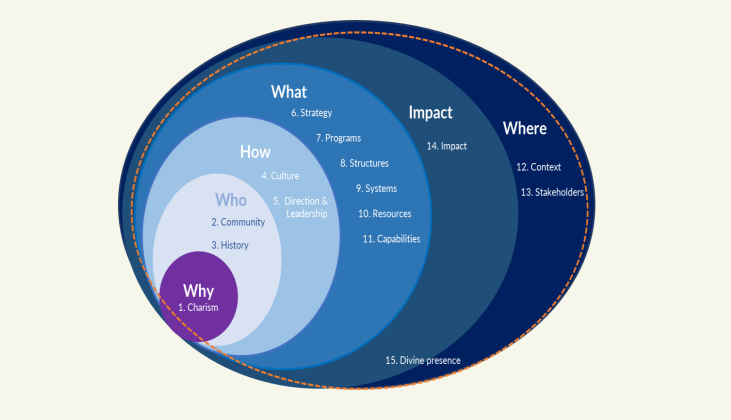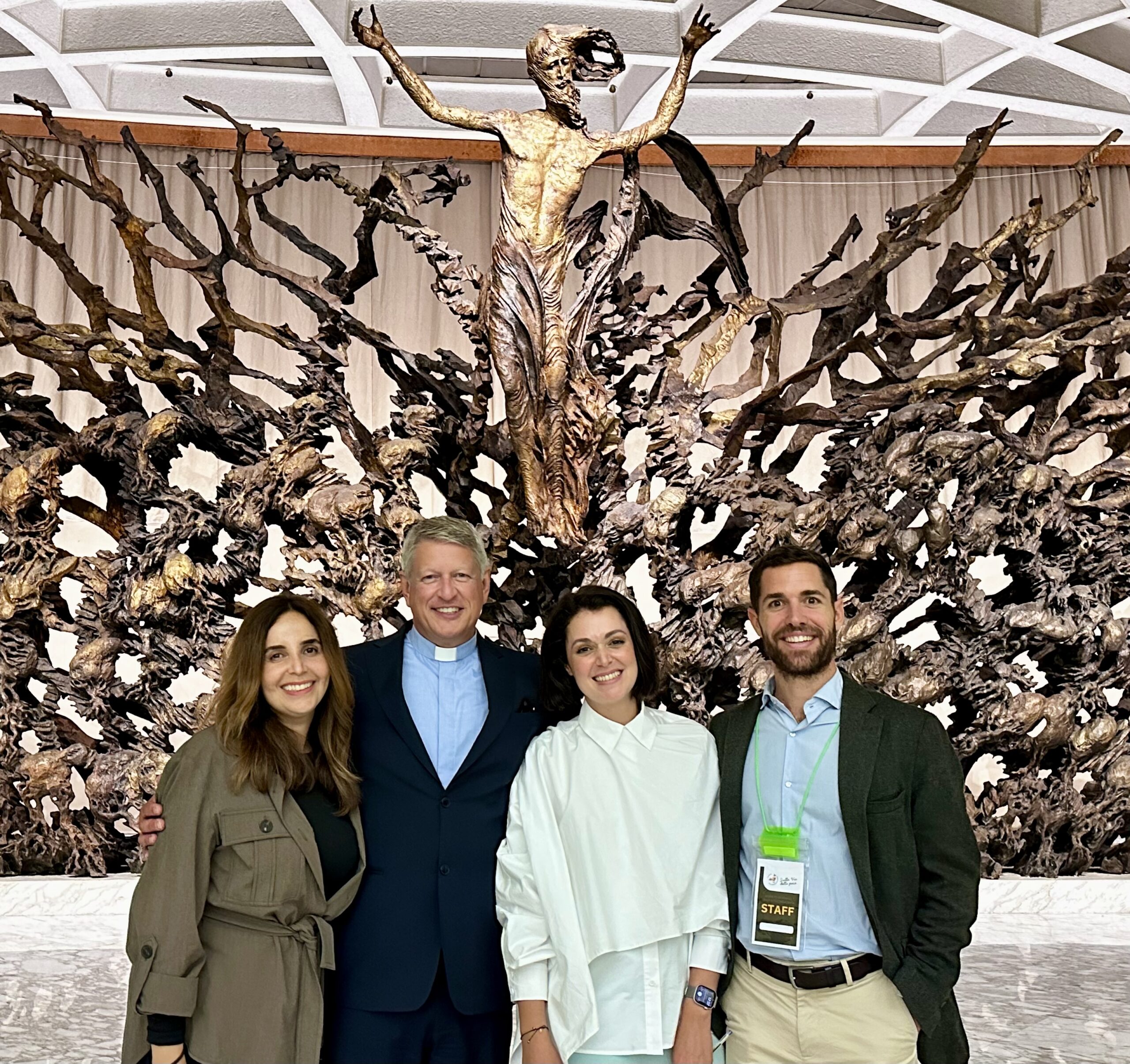According to St Ignatius, we all have experiences of a Good Spirit and an Enemy Spirit, constantly vying for our attention. The Good Spirit invites us to move towards God as our center and into deeper relationship with God, with ourselves, with others and with our environment. We recognize this movement towards God as that which results in an increase in faith, hope and love, and which gives us energy to be big hearted and generous in doing the good. The Good Spirit invites us to act based on values which are founded on courage, collaboration and commitment.

In contrast to this, the Enemy Spirit tempts us to move away from God by placing ourselves or others (or other things) at our center. Our actions, when driven by the Enemy Spirit, are founded on some form of fear and its many variations.
Drawing from the work of Thomas Hübl, we see how the Bad Spirit often targets our childhood wounds around belonging, being, and becoming. In this space, a wound of belonging triggers the belief, ‘I am not worthy of love unless...’. A wound of being, ‘I am not safe to express myself unless…‘. And a wound of becoming, ‘I am not enough unless…‘. As leaders, our effectiveness is judged not by our intentions but rather our impact. When our actions are driven by these fear-based tendencies, our seemingly good actions and good intentions are rooted in our deepest insecurities, and therefore, can lead to unintended consequences.
The Universal Model of Leadership developed by Bob Anderson and Bill Adams identifies these three childhood wounds as three Reactive Tendencies: complying, protecting, and controlling. These reactive tendencies reflect our attempts to meet our needs for belonging, being and becoming in unhealthy ways. As a Discerning Leader, I can recognize my reactive tendencies with the following self-narratives: in complying “I go along to get along”; in protecting “I stay apart to stay safe” and in controlling “it’s my way or the highway”.
As Chris Lowney notes in his book, Heroic Leadership “we are all leaders, and we are leading all the time”. As leaders, there is an alternative. And the Universal Model of Leadership identifies this alternative as the Creative Competencies. The Creative Competencies offer an integrated approach, allowing us to meet our needs in healthy and generative ways rooted in faith, inner freedom, and conscious intention.
When acting from the Creative Competencies, we move from a tendency to comply toward a capacity for collaboration based on equal acceptance of self and other; we move from a tendency to protect toward a capacity for expressing what is true for us and making the invisible, visible, with courage, vulnerability and respect; and we move from a tendency to control toward a capacity for commitment to collective purpose and vision
When acting from the invitation of the Good Spirit, we accept the Good News and the mystery of God’s generosity of unconditional love that as “loved sinners”, we are worthy of love, we are safe to express ourselves and we are enough. It is when our actions are rooted in this space, that we shift from the unintended consequences of the Reactive Tendencies, to the generative outcomes of the Creative Competencies.
This move from our Reactive Tendencies to Creative Competencies requires not only awareness and understanding but also the space for grace. Courage and honesty opens this space. Therefore, in turning towards God, the Discerning Leader asks: When I feel the urge to control, what fear am I trying to avoid? When I tend to comply, what truth am I suppressing? When I protect, what vulnerability am I hiding?
As a Discerning Leader, by constantly growing our awareness of the two spirits within us and understanding our Reactive Tendencies, we can make conscious choices that align with our values and good intentions. This requires a daily practice in awareness, understanding and importantly, action.
Ultimately, this journey of personal and leadership development involves faith, self-compassion and a willingness to co-create and collaborate with God at our center.
By embracing our shared humanity and recognizing our interconnectedness, we can cultivate a path toward greater authenticity, compassion and a world where all can flourish.




